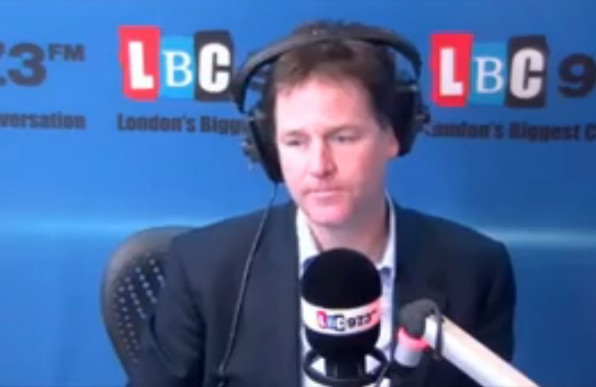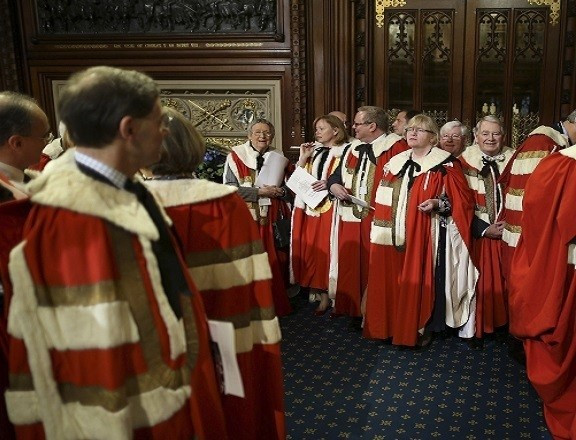Clegg Calls for End of Church-State Link and Raises Question Over House of Lords

Nick Clegg has stepped right into the centre of the extraordinary row over religion sparked by the prime minister, by suggesting church and state should separate.
And from some of the reaction you would think he had suggested a slaughter of the first born or that he was urging a Soviet-style coup against the Royal family.
In giving a straight answer to a straight question, the deputy prime minister said he believed separation would be good for both institutions, declaring: "I think it would be better for the Church, and better for people of faith, and better for Anglicans if the Church and the state were, over time, to stand on their own two separate feet."
He made it clear he did not think disestablishment was likely to happen in the foreseeable future, but that didn't stop the inevitable backlash.
David Cameron, who last week said Britain should be proud of its Christianity and be a bit more evangelical about it, immediately dismissed the ideas as a "long-term liberal idea but not a Conservative one".
And there were the usual claims that Christianity was under attack from "militant atheists" determined to destroy all that is sacred in Britain by suggesting Christianity should stand on its own two feet.
Whatever the strength of feeling on all sides, though, there is absolutely no chance such a policy will get off the ground. But why not?
Both Clegg and Labour leader Ed Miliband are declared atheists and haven't been ostracised by voters for it. And it is a pretty fair bet that a large minority, perhaps even a majority of MPs are also non-believers.
Meanwhile, as Britain has become a hugely diverse nation, the number of citizens describing themselves as religious, let alone Anglican, continues to fall and the numbers regularly attending churches has plummeted.
It must, then, be a perfectly reasonable and maybe timely question to ask why it is that only Anglican bishops receive the immense privilege of automatic, unelected membership of the House of Lords from where they can make the nation's laws.
And, while it is patently true that Britain's laws and dominant culture have been formed by Christianity, those central values are just as strongly held and practiced by non-believers and would remain embedded in the fabric of the democracy.
Removing the bishops from the upper chamber would certainly have constitutional implications, not the least over the monarch's role as head of the Church of England, thanks to Henry VIII and his domestic arrangements.
But these are largely symbolic with little or no practical effect and could be resolved if there was a will.

Meanwhile, the government has been getting itself into tangles over issues such as same-sex marriage, women bishops, equality issues and so on which would simply disappear if the link was broken.
And then there is the long-running sore of Lords reform, half-heartedly carried out by Tony Blair and left unfinished since. More or less everyone agrees it needs to be done, but the option of outright abolition is seldom debated.
Dozens of democratic countries, not just authoritarian ones like China, manage perfectly well with a single chamber. And a more accountable, perhaps even large Commons with an extended scrutiny committee system could be an option. And no bishops.
Needless to say, none of this will happen because it would require political will, lots of time and some evangelising of its own.
Even if there was a political will, which there isn't, it would understandably be seen as a huge distraction from far more pressing issues such as the economy, health, education, welfare and so on.
And, as the reaction to Clegg's remarks has shown, there would be a powerful fightback from the established church and its supporters. And no politician is going to want to pick that sort of fight.
© Copyright IBTimes 2025. All rights reserved.






















